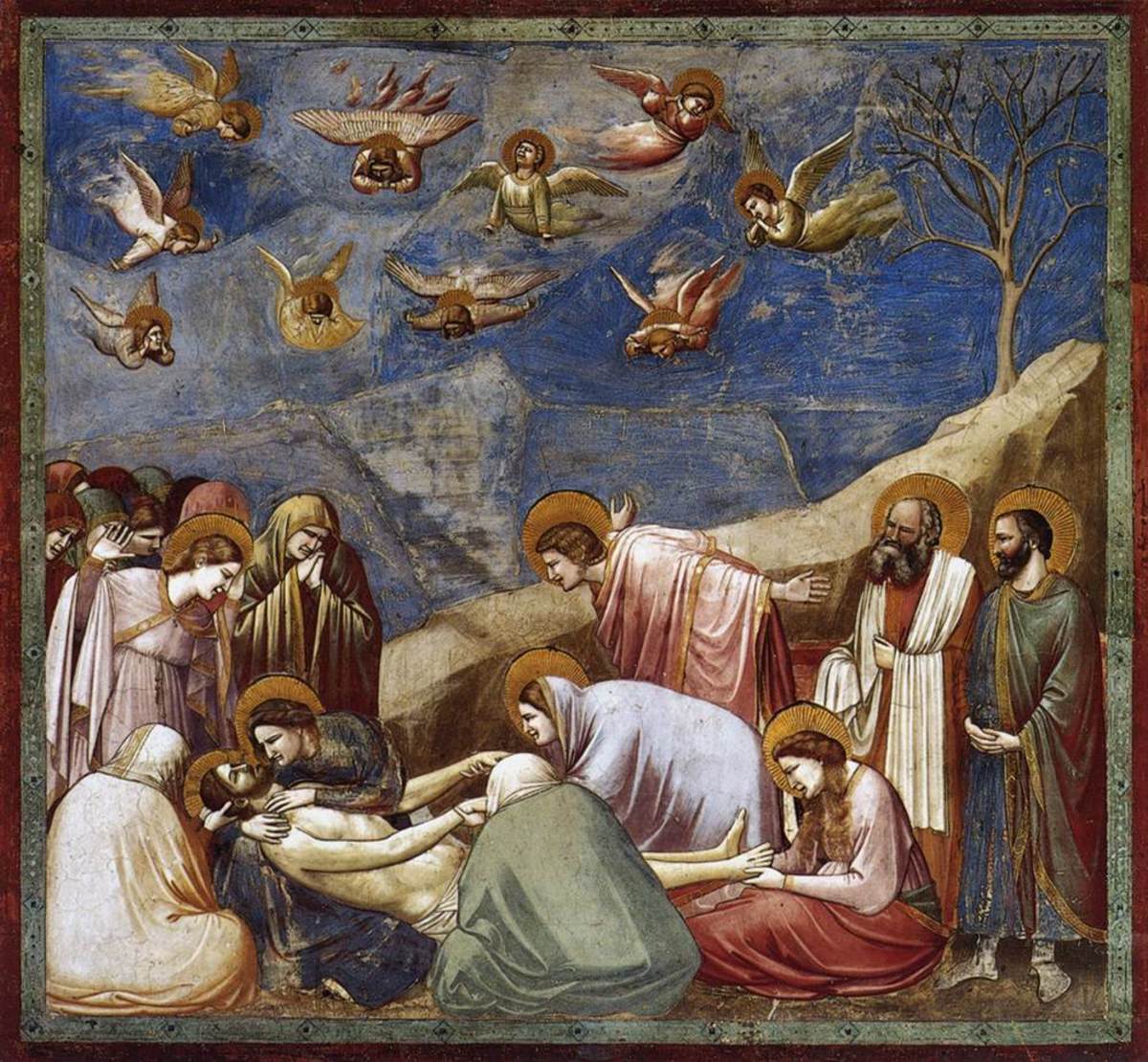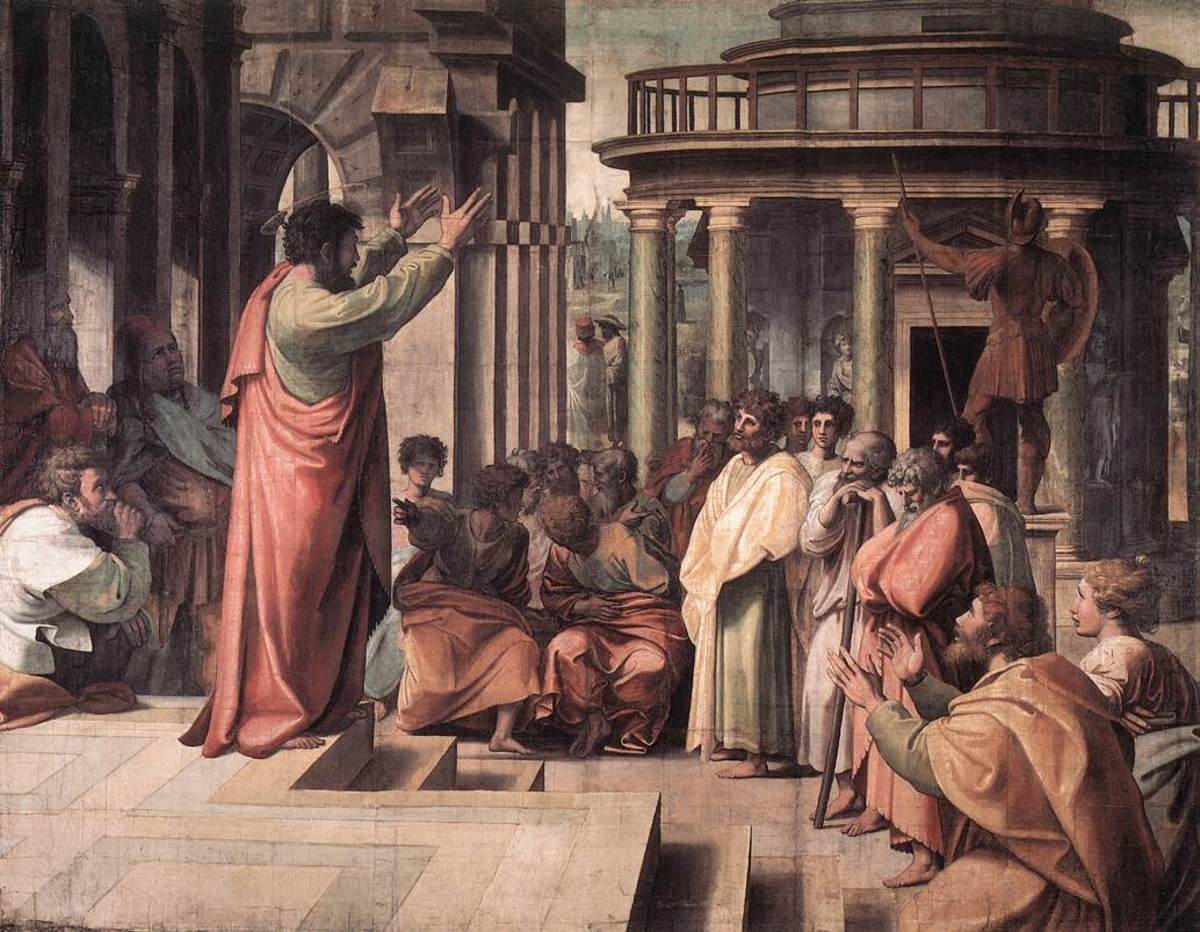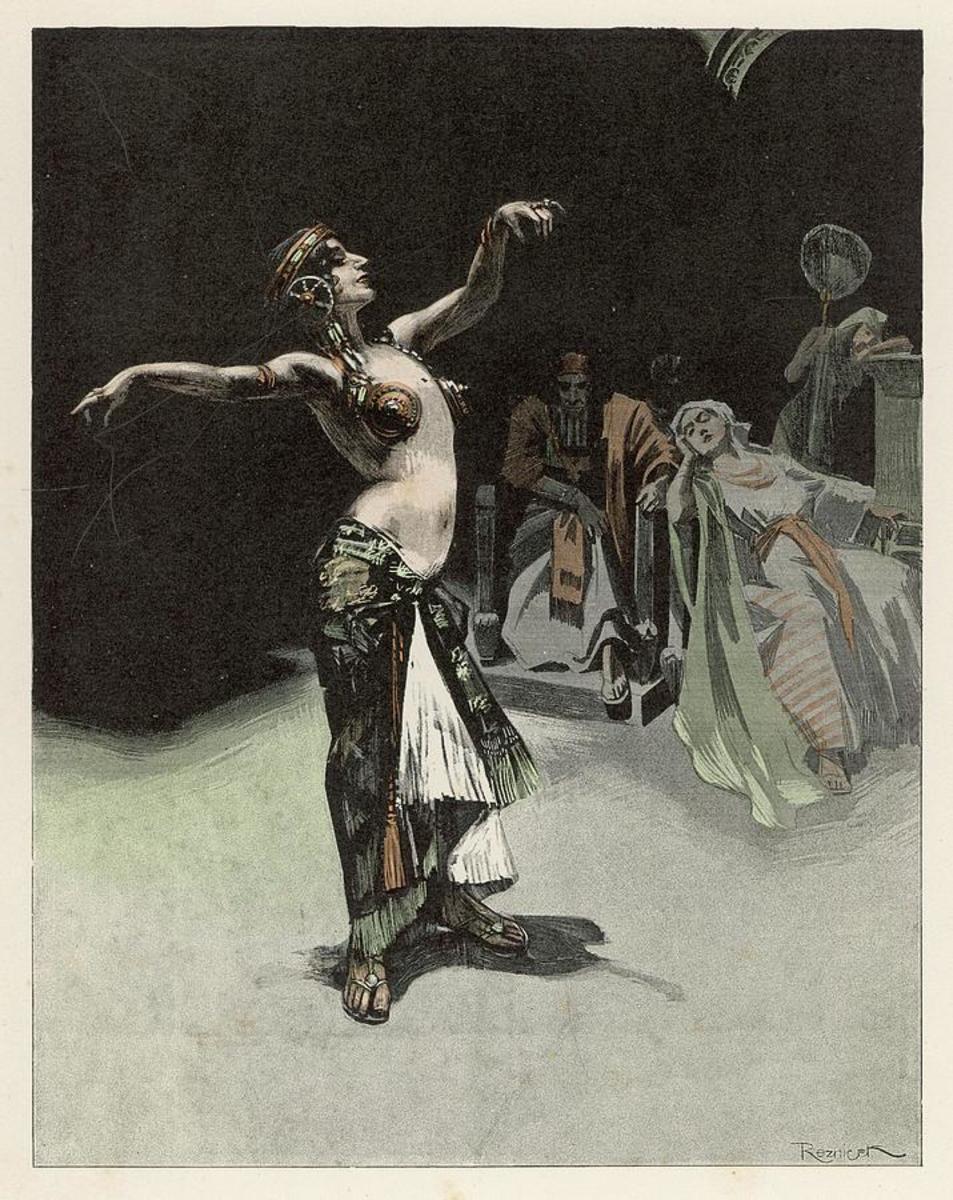True Christian Faithfulness

The fifteenth chapter of 1Corinthians offers some terrific information for understanding and being obtained unto true Christian faithfulness. It begins with a summary of the gospel. And once again, as he often does, Paul focuses our attention on that message, that message which also composes the foundation and characterizes his faithful ministry. In his epistle to the Romans Paul lays down the basic teaching of the good news. In his letters to the Corinthians, the apostle builds on the good news from God that he had previously proclaimed, concentrating on the practical value the message has for the believers’ current lives.
The gospel affects the believer both in behavior and thinking. If there is schism, fleshly depravity, greed, selfishness and disorderliness, then it is the word of the cross, faith that we were justified in the name of our Lord Jesus Christ, that we are bought with a price—it is the good news, the gospel, that corrects us and strengthens us in a more faithful walk (1Corinthians 1:10-31; 4:16; 5:7; 6:11; 7:23; 8:11). The gospel is a message that says we can do nothing to save ourselves, and so it fosters real dependency on God, not only in those receiving it, but also in those proclaiming it. But it is also a message that says God does save us; He graciously delivers us from sin and death, in Christ Jesus, through His death and resurrection, and so in believing it we are strengthened in confidence in our God and roused to His praise, in continued acceptance of His goodness and direction. What is happening here is that we are being so affected by the message, the gospel, the power of God, that we start to believe who and what we really are in Christ ("The Christians True Identity" and "Your Real Profile") and our lives become more and more attuned to faithfulness.
An Unfaithful Claim
What applies to sinful acts of the flesh first applies to failures in our thinking and our fleshly tendency to alter the truth as God has spoken it. For instance, there were those among the Corinthians who were saying there is no resurrection of the dead (1Corinthians 15:12). Consequently in exposing the dangers of this unfaithful concept the Apostle Paul draws special attention to the gospel which he now expresses in clearest of terms: “Christ died for our sins according to the scriptures, and... He was buried, and... He has been raised the third day, according to the scriptures” (1Corinthians 15:3, 4).
Those who have been effected by the gospel need to be effected by the gospel again and again to keep growing into more and more of the fullness of what God has for them. We cannot lose our right standing before God in Christ or our eternal life (Romans 5:15-21), but, on the other hand, we never lose our need to hear and retain the gospel which says that Christ died for our sins and was raised from the dead. Believers are most blessed when they are growing in trust about God's unwavering faithfulness to back His promises. And God definitely has the best interest of His children at heart.
He is Risen
The resurrection of Christ is a pivotal point, fundamental to our faithfulness in two directions, looking back to the cross and forward to immortal life. In truth our present believing, our life of faith, is vain, without purpose and value, if Christ has not been raised from among the dead. First of all, if Christ has not been raised from the dead, we are still in our sins (1Corinthians 15:17). And also, as seen said in verse 19, if Christ has not been raised we are left “most miserable” (“most miserable” is better translated in some versions as “forlorn”. Synonyms of forlorn include: abandoned, alone, bereft, blue, cheerless, comfortless, cynical, defenseless, depressed, deserted, desolate, despairing, desperate, despondent, destitute, destroyed, disconsolate, down and out, dragging, forgotten, forsaken, friendless, fruitless, futile, godforsaken, helpless, homeless, in the dumps, lonely, lonesome, lost, miserable, oppressed, pathetic, pessimistic, pitiable, pitiful, solitary, tragic, unhappy, vain, weighed down, woebegone, wretched).
But thank God that He did raise Christ from the dead, yes? Is this true? Is this important to believe? Absolutely! Romans 10:9, 10: “That if thou shalt confess with thy mouth the Lord Jesus, and shalt believe in thine heart that God hath raised him from the dead, thou shalt be saved. For with the heart man believeth unto righteousness; and with the mouth confession is made unto salvation."
Christ’s Death for our Sins
Christ died for the sins of all mankind. This is well established in Romans where we learn that He died for the sake of the irreverent (Romans 5:6), for sinners (5:8) who are now justified in His blood (5:9), and for enemies who are conciliated to God through the death of His Son (5:10). But we also learned in Romans that Christ “was raised because of our justifying” (4:25).
It was our offenses that resulted in Christ being given up to death, and it was our justifying that opened the way to the raising of Christ from the dead. He was not raised in order to justify sinners but because justification had been established. He was raised because the sins of sinners had been dealt with successfully by His death.
We should not think of Christ’s resurrection simply as a recovery out of a tragic circumstance. The death of Christ did not catch God by surprise, calling for new strategies and a rescue plan. God’s Son was “given up in the specific counsel and foreknowledge of God” (Acts 2:23). The resurrection of Christ which was also part of God’s counsel is the exultant revelation that God’s purpose for giving His Son for sinners has been achieved. This is why Paul has given a list of witnesses to the risen Christ immediately after and in connection with his restatement of the gospel in 1Corinthians 15:3-8. Paul proclaims here, to many who were witnesses themselves, that the resurrected Christ was seen by over five hundred brethren and the apostles and Paul himself in a special revelation. How far do you suppose Paul's ministry would have gone had he not been telling the truth? The resurrection is not only evidence of God’s power in giving life where there had been death, but is also the proof of the defeat of death and sin.
This is for all mankind, since all have sinned and all are dying. We have seen the truth about the availability of race-wide justification dramatically and thoroughly attested in the book of Romans. It was not the Corinthians’ faith that gained their justification. It was the death of Christ that put away sin. Although it is true that on believing the Corinthians were sealed with the holy spirit of promise (Ephesians 1:13), and, as believers, righteousness had been now put to their account (Romans 4:5, 11, 24), and in this colossal respect they differed from the unbeliever, nevertheless, what Christ did, He did for all. The sins of all the sinners of every era were dealt with by the faithful obedience of our Lord Jesus Christ. Some have accepted it and others have not. But the gospel which announces that the sinner has been put to death in the death of Christ, also proclaims that there is now that certain and happy expectation available to all for new life in Christ apart from sin. The death of Christ achieves the death of sin, and the resurrection of Christ announces that this is achieved; moreover, the resurrection announces that new life apart from sin and death is now available to walk in, with even more to come at His return.
For our Expectation
Hence Paul points out that if Christ has not been raised those who have died in Christ have perished (1Corinthians 15:18), for this means the death of Christ would have failed of its object. And the apostle adds, “If we are having an expectation in Christ in this life only, more forlorn than all men are we” (1Corinthians 15:19). The present life does not completely satisfy our hopes. We enjoy blessings in Christ, but these are primarily in spirit and by faith, not simply in temporary pleasures. Not to say that pleasures and comforts are insignificant, however, this is also a time when our experience is often characterized by weakness and failure, a time of growth and change, standing in contrast to who and what we really are and have in Christ, and definitely in contrast to the fullness of what we will enjoy when Christ returns and thereafter. And such things can serve towards an attitude of gratitude when viewed as a backdrop for bringing out the glory of God's love, power and grace.
But, even as the death of Christ for sinners means that anyone can be saved and constituted just, the resurrection of Christ points to a future which involves immortality and life beyond our wildest dreams and expectations. Paul is writing to believers, and he has much to say about the implication of Christ’s resurrection for us. We have not only been given new life now, but we will be made completely alive (vivified) at His return (1Corinthians 15:23). Later in the fifteenth chapter of 1Corinthians the apostle offers many details concerning our resurrection body and the change that will occur when we put on incorruption and immortality (15:35-53).
What Paul reveals about us here in 1Corinthians 15 is associated with what is true about being vivified in Christ in His presence, at His return. Yet this is not the beginning or the end of the glorious outcome of Christ’s resurrection, which encompassed present realities that are true of us now in our unification with Christ, and ultimately encompasses the vivification of all who have ever and will ever believe regarding the Christ (Old Testament believers believed looking forward, all others believe looking back). In 1Corinthians 15:21, 22, Paul reaches a crescendo of gospel truth implied by the resurrection of Christ. “For since, in fact, through a man came death, through a Man, also, comes the resurrection of the dead. For even as in Adam all die, thus also, in Christ shall all be made alive (vivified)”.
Being Made Alive (Vivification)
I do realize that some people may not feel comfortable with this word “vivified”; nevertheless, it does communicate the meaning of the Greek word zoopoieo more accurately (to vitalize, make alive, to quicken). And it can help us see that in 1Corinthians 15:21, 22 the gospel is worded in similar terms to Romans 5:12, 17, 18, 19, but expressed it anew in a context especially centered on the resurrection of Christ. Comparison between those four verses in Romans and 1Corinthians 15:21, 22 embraces the view that being vivified now in part, and later in full, are both due to the faithfulness of God and the faithfulness of our Lord Jesus Christ.
True Christian faithfulness comes into play as we are vivified by God in Christ, by belief of the gospel. including acceptance that the riches of God's grace to us in Christ are indeed present and future realities. Colossians 3:1-4 puts it this way, "1 If ye then be risen with Christ, seek those things which are above, where Christ is seated on the right hand of God. 2 Set your affection on things above, not on things on the earth. 3 For ye are dead, and your life is hid with Christ in God. 4 When Christ, who is our life, shall appear, then shall ye also appear with him in glory."
If we look at our flesh with honest eyes in comparison to the holy, holy, holy God Almighty we tremble with weeping. If we look at ourselves as the new creation that God has made us to be in Christ we tremble with joy and thankfulness. And when humble Christians look at themselves with only the eyes of flesh and experience they tremble with doubts and dismay. But because we believe that Christ has been raised from among the dead, we look at ourselves in Christ with the eyes of God and are strengthened with assurance. All that God has said about our present condition is true because it is based upon the death and resurrection of Jesus Christ, and all that He has said about our future life will come about for the same reasons.
In Conclusion
The basis for true Christian faithfulness is the death, burial and resurrection of Christ and our complete identification with Him in these matters. Gospel realities are the issue on which our experience and destiny rests (for more on these realities see the hub "Gospel Blessings"). If God is to be presently achieving His will in saving us (making us whole, delivering us from all bad into all good) and bringing us unto a knowledge of truth (1Timothy 2:4) and manifesting His position as our immediate and ultimate Saviour (1Timothy 4:10), then it is because of what Jesus Christ accomplished at Calvary and who and what we are as a result, not because of what we accomplish in making ourselves to be. We will be rewarded for our faithfulness in accepting, trusting in, and proclaiming God's super abundant grace which is in Christ Jesus our Lord.
1Corinthians 15:10: "But by the grace of God I am what I am: and his grace which was bestowed upon me was not found vain; but I laboured more abundantly than they all: yet not I, but the grace of God which was with me."
1Corinthians 3:7-15: "7 So then neither is he that planteth anything, neither he that watereth; but God that giveth the increase. Now he that planteth and he that watereth are one: but each shall receive his own reward according to his own labour. 9 For we are God’s fellow–workers: ye are God’s husbandry, God’s building. 10 According to the grace of God which was given unto me, as a wise masterbuilder I laid a foundation; and another buildeth thereon. But let each man take heed how he buildeth thereon. 11 For no other foundation can any man lay than that which is laid, which is Jesus Christ. 12 But if any man buildeth on the foundation gold, silver, costly stones, wood, hay, stubble; 13 each man’s work shall be made manifest: for the day shall declare it, because it is revealed in fire; and the fire itself shall prove each man’s work of what sort it is. 14 If any man’s work shall abide which he built thereon, he shall receive a reward. 15 If any man’s work shall be burned, he shall suffer loss: but he himself shall be saved; yet so as through fire."
So let us guard against the various issues of theological argument that interfere with obtaining unto a walk of grace produced faithfulness; issues such as judgment and the severity of condemnation, torment, destruction, issues of divine sovereignty and election, strong willpower and self discipline. All of these are certainly related to human destiny, and they need to be faced and tested by the Scriptures, but more importantly at the very foundation of every consideration lies the revelation of God in the giving of His Son for sinners.
God desires to save and vivify everyone on the basis of the cross of Christ, on the basis of the price He paid, on the basis of the justification gained in His blood, on the basis of Christ’s death followed by the triumphant verification of the defeat of death which His resurrection affords.
Through the grace of God which is in Christ Jesus our Lord, may the power of God and the love of God truly be that which produces faithfulness in the lives of His sons and daughters, and always be that which shines outward from the body of Christ, leading many others into the bosom of our Father’s heart.







